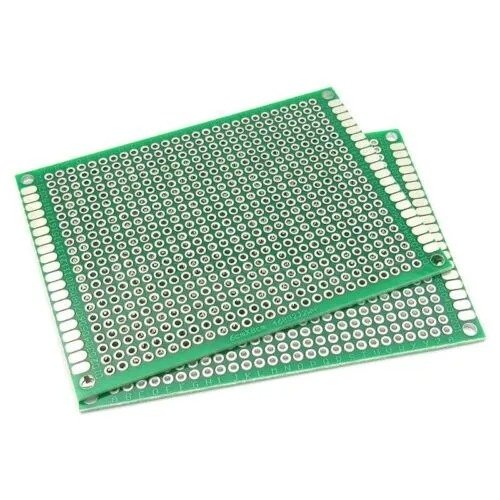Understanding Solar Battery Storage: Benefits and Options
As the demand for renewable energy grows, solar power has become a central component in sustainable energy solutions. One of the most significant advancements in solar technology is battery storage, which allows homeowners and businesses to store excess energy generated during sunny periods for use when sunlight is limited. Solar battery storage enhances energy independence, reduces reliance on the traditional power grid, and can help manage electricity costs.
We will explore the benefits and options available for solar battery storage, providing a clear understanding of how it functions and why it has become a crucial addition to solar energy systems. By understanding these aspects, individuals can make informed decisions about incorporating solar batteries into their energy setup with guidance from North Valley Solar Power and gain long-term advantages from sustainable power solutions.
Benefits and Options of Solar Battery Storage
Energy Independence and Reliability
Solar battery storage offers a significant improvement in energy independence. Without storage, solar panels can only provide electricity during sunlight hours, leaving households reliant on the grid during nights or cloudy days. Batteries store the excess energy produced during the day, ensuring a consistent power supply at all times. This capability is particularly valuable in areas with frequent power outages or unstable grid conditions. Additionally, energy storage allows users to monitor and manage electricity use more efficiently, reducing waste and increasing overall system efficiency. Over time, this reliability not only provides convenience but also ensures that critical appliances and devices remain operational even during unexpected power interruptions, giving homeowners peace of mind.
Cost Savings and Energy Management
Integrating solar battery storage into a solar system can lead to substantial cost savings. By storing energy during the day when solar panels generate excess electricity, users can utilize this stored power during peak demand hours when electricity rates are higher. This approach minimizes dependence on the grid and reduces monthly energy bills. Moreover, battery storage enables users to participate in time-of-use rate programs offered by many utility providers, which charge different rates based on peak and off-peak times. By leveraging stored energy strategically, households and businesses can avoid high-rate periods, resulting in long-term financial benefits. Effective energy management with batteries also ensures that energy is available when it is most needed, enhancing overall efficiency and sustainability.
Environmental Benefits
Solar battery storage contributes significantly to environmental sustainability. By storing and using renewable energy rather than drawing from fossil fuel-powered grids, users reduce carbon emissions and decrease their overall environmental footprint. Stored solar energy ensures that excess energy generated is not wasted but utilized efficiently, which supports a more sustainable energy ecosystem. Furthermore, as renewable energy adoption increases, large-scale battery systems help balance supply and demand in the power grid, facilitating a smoother transition from traditional energy sources to clean alternatives. The combination of solar panels and batteries represents a proactive step toward reducing greenhouse gas emissions and promoting environmental stewardship at both the individual and community levels.
Variety of Battery Options
There are several types of solar batteries available, each with unique characteristics suitable for different energy needs. Lead-acid batteries, traditionally used in solar systems, are affordable and reliable but have limited lifespans and lower energy density. Lithium-ion batteries have gained popularity due to their higher energy efficiency, longer lifespan, and smaller footprint, making them ideal for modern solar setups. Flow batteries are another emerging option, offering scalable storage capacity and long cycle life, which is beneficial for larger installations or commercial applications. Choosing the right battery type depends on factors such as energy requirements, budget, available space, and desired longevity. Understanding these options allows users to select a system that aligns with their specific energy goals and future expansion plans.
Integration with Smart Home Systems
Modern solar battery systems often integrate seamlessly with smart home technology, enabling enhanced monitoring and control of energy use. Users can track energy generation, storage levels, and consumption patterns through mobile apps or web interfaces, allowing them to optimize energy utilization. Smart integration also allows automated responses, such as diverting excess power to storage or adjusting consumption during peak rates, which maximizes efficiency and convenience. This level of control ensures that energy is not only available when needed but also used in the most cost-effective and environmentally responsible manner. For households aiming to create a connected and energy-efficient environment, integrating batteries with smart systems represents a forward-thinking approach to sustainable living.
Backup Power for Emergencies
One of the most practical advantages of solar battery storage is providing backup power during emergencies. Natural disasters, storms, or grid failures can disrupt electricity supply, leaving homes and businesses vulnerable. Batteries can store enough energy to power essential appliances, lighting, and communication devices, ensuring safety and comfort until regular power is restored. This capability transforms solar systems from a daytime energy solution into a reliable, round-the-clock energy source. For families and organizations in regions prone to power outages, investing in solar batteries offers not only financial benefits but also security and resilience. It allows for the continuous operation of critical systems, including refrigeration, heating, and medical devices, which is essential during unforeseen disruptions.
Solar battery storage is a transformative addition to solar energy systems, offering multiple benefits ranging from energy independence and cost savings to environmental impact and emergency preparedness. With a variety of battery options, integration with smart home technologies, and scalability for future expansion, these systems provide flexible solutions for both residential and commercial applications. By storing excess solar energy, users can optimize electricity use, reduce reliance on the grid, and contribute to a more sustainable energy future.






